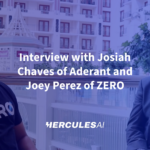
PR: ZERO recognized in 2022 Gartner® Hype Cycle™ report
August 17, 2022
Interview with Josiah Chaves of Aderant and Joey Perez of ZERO
October 7, 2022
Just when you’re ready to end your day, you realize that your work isn’t quite finished yet.
You still have to fill out your timesheet with a detailed log of every client, matter, and task you worked on today. Looks like going home will have to wait.
Timekeeping is an unfortunate reality of law firm life. As a lawyer, you’re paid for services rendered, which means you have to keep track of which services you’ve rendered and how much time you should bill for them. Even those firms that use alternative fee structures want to know how long individual tasks take so that they can align their fees with their lawyers’ work.
While capturing time is an essential part of a lawyer’s workload, it doesn’t have to eat up your evening hours. Let’s look at the problems around timekeeping and how we can solve them.
Why Is Timekeeping So Challenging?
When you try to capture time in the moment, it constantly disrupts your workflow. Lawyers spend much of the day multitasking or rapidly task-switching: taking a call from Client R, then answering emails from Clients Q, S, and T before turning to a scheduled meeting with Client V. Lawyers are also adept at batching tasks, devoting an hour to their email inbox but working on 15 different tasks for 10 different clients and 12 different matters in that time.
Remembering to update your timesheet every time you shift focus means you have to shift focus twice as often. Instead of jumping from task one to task two, you have to remember to jump from task one to your timesheet and then over to task two before returning to your timesheet again. You might think it would be faster to keep contemporaneous notes instead of updating your timesheet each time you change tasks—but then you take on the burden of tracking down all of the day’s notes and transferring them into your timesheet later.
It can feel like you spend one minute out of every six updating your timesheet. Invariably, as the day gets busier, you’ll fall behind.
That’s where timekeeping gets even harder.
The Consequences of Not Immediately Capturing Billable Time
At the end of a long day, you realize you’re six hours behind on your timesheet entries. So, you set about trying to reconstruct your day. You consult your calendar to see what meetings or court hearings you had. You review your call logs and email inbox to see what communications you sent and received. You scroll through the documents you worked on to try to piece together the rest of your tasks.
The result of all that effort is an inaccurate, partial picture of your workday. The process is also a slog to get through, which makes it easy to put off—and the longer you put off your time tracking, the less accurate your timesheet is.
Here’s the good news: it doesn’t have to be like this.
Introducing Smarter Timekeeping
ZERO Apollo adds an intelligent layer on top of existing time entry tools to automatically capture and categorize billable time. That means never having to reconstruct another workday. As a result, timekeepers have a better work/life balance and more job satisfaction, all while driving more revenue for the business.
Contact us to learn more and schedule a meeting.
